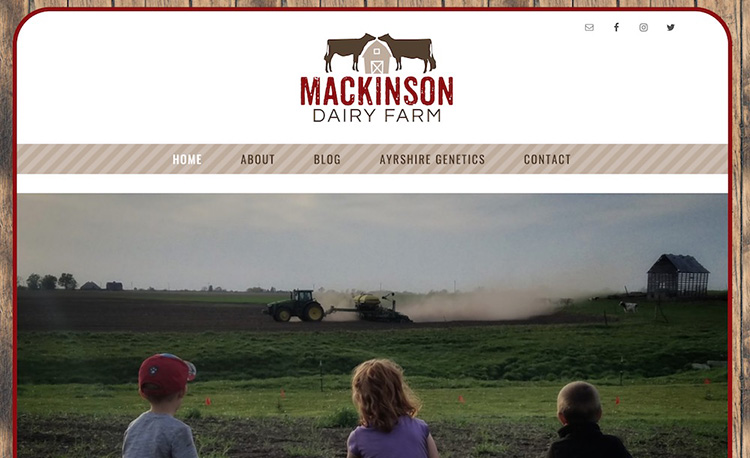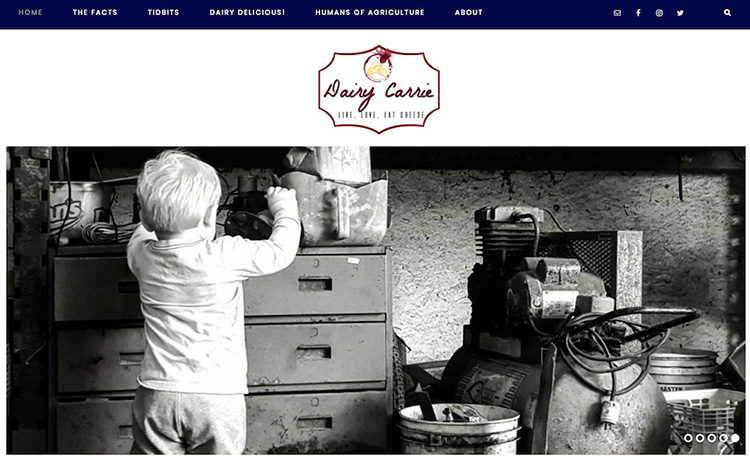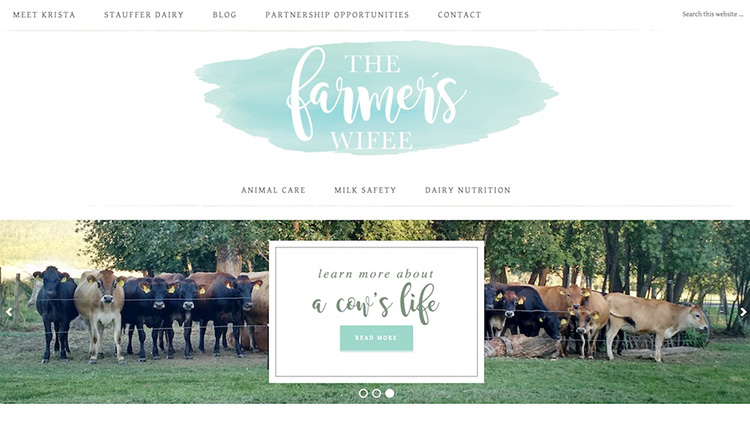
Remember when everyone used to tell you that having a farm blog was a priority — before social media was all the rage? Are farm websites and blogs worth the time to build today?
Yes, farm blogs are just as important as they were back before social media. In fact, they might be more important, depending on how your customers are searching for information.
I know it's much easier to just use social media to communicate compared to using a website tool such as Wordpress, Wix, Webbly, or SquareSpace. (These are common website building content management systems.)
But I'll give you six good reasons why having a farm blog or website is still something every farm should have, not just the farms that are advocating for agriculture.
1. You own the domain and property.
You don't own your Facebook page, Twitter profile, YouTube channel, Instagram profile, LinkedIn page, or Snapchat profile. The company does, and if they want to change the rules or if they feel like you violated them, then they can remove you and all your content from the system. With your own blog or website, you have full control.
2. A website can centralize all of your channels and content.
You are spending a lot of time creating content for these various social media channels, but does anyone go back and read an old Facebook post or Tweet? No. But if you put the text, photos, and videos on your website, people will be able to go back and read them (and it will get indexed properly by Google, so it can be found through searches).
3. Google will index it in the first position when people search for your farm.
Social media profiles rarely show up in the top position in Google's search engine results page. If you want your farm name to show up when people search for it, then a website or blog is what Google will show first.
4. It will become the diary of the farm.
If you post content regularly to the website, then you will build a history of the farm through videos and photos that future generations can look back on for years and years. It will become the legacy of the farm. I wish my grandfather had a blog when he was building the farm from the ground up in the 1930s. I would probably read it daily — over and over.
5. You can build an e-mail list.
E-mail marketing is still very powerful and highly affordable (it's practically free with Mailchimp and Constant Contact). By building an email list with your urban and local customers, you can reach out to them at any time to let them know what's going on with the farm.
6. You could make money with it.
Many large brands use influencer marketing to get the word out about their new products. I have many farmer and urban blogger friends who make a living out of their blog by providing their large customer base with value through recipes and practical advice. The brands take notice of this and pay them to do sponsored posts (on social media as well) or through the Google Adsense Display network on their blog. All you have to do is set up Google Analytics on your blog to see how many people are visiting and what they are doing on the website.
Blogs and websites are still very important to agriculture, and I would recommend that every farm have one. If you need help setting one up, please reach out to me (don.schindler@dairy.org) or to your local dairy checkoff.
Keep calm and blog on.

The author is a Senior Vice President of Digital Initiatives at Dairy Management Inc.











